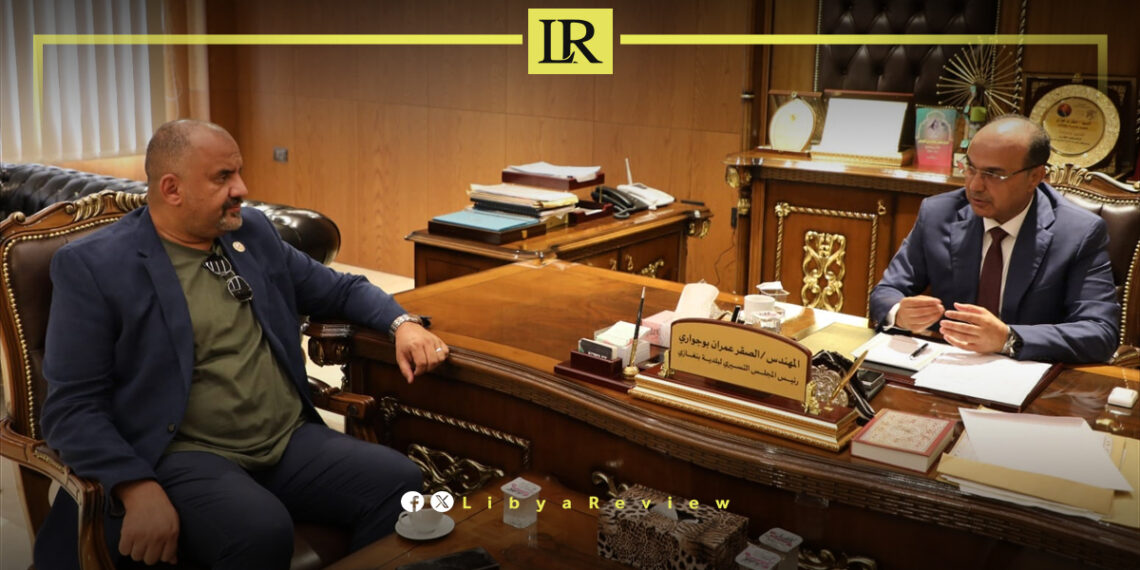The Head of the Steering Council for the Municipality of Benghazi, Engineer Al-Saqr Omran Bouguari, held a meeting with Dr. Ahmed Rahouma, the Director of the Emergency Medicine and Support Center for the Eastern Region, at the municipality’s headquarters.
During the meeting, they discussed the swift response measures required during crises and emergencies. Dr. Rahouma confirmed that the Emergency Medicine Center and its technical teams are fully prepared to handle such situations.
The two sides agreed to establish joint coordination, particularly regarding training programs for staff on handling emergencies and crises, as well as awareness campaigns for citizens.
The meeting also explored the collaborative efforts to enhance the municipality’s emergency operations room and plans to open emergency medical centers in the eastern and western parts of Benghazi during the first phase, with additional centers to follow in later stages across the city.
Libya has been in chaos since a NATO-backed uprising toppled longtime leader Muammar Gaddafi in 2011. For years, the county has been split between rival administrations.
Libya’s economy, heavily reliant on oil, has suffered due to the ongoing conflict. The instability has led to oil production and price fluctuations, impacting the global oil market and Libya’s economy.
The conflict has led to a significant humanitarian crisis in Libya, with thousands of people killed, and many more displaced. Migrants and refugees using Libya as a transit point to Europe have also faced dire conditions.
The planned elections for December 2021 were delayed due to disagreements over election laws and the eligibility of certain candidates. This delay has raised concerns about the feasibility of a peaceful political transition.
Despite the ceasefire, security remains a significant concern with sporadic fighting and the presence of mercenaries and foreign fighters. The unification of the military and the removal of foreign forces are crucial challenges.


